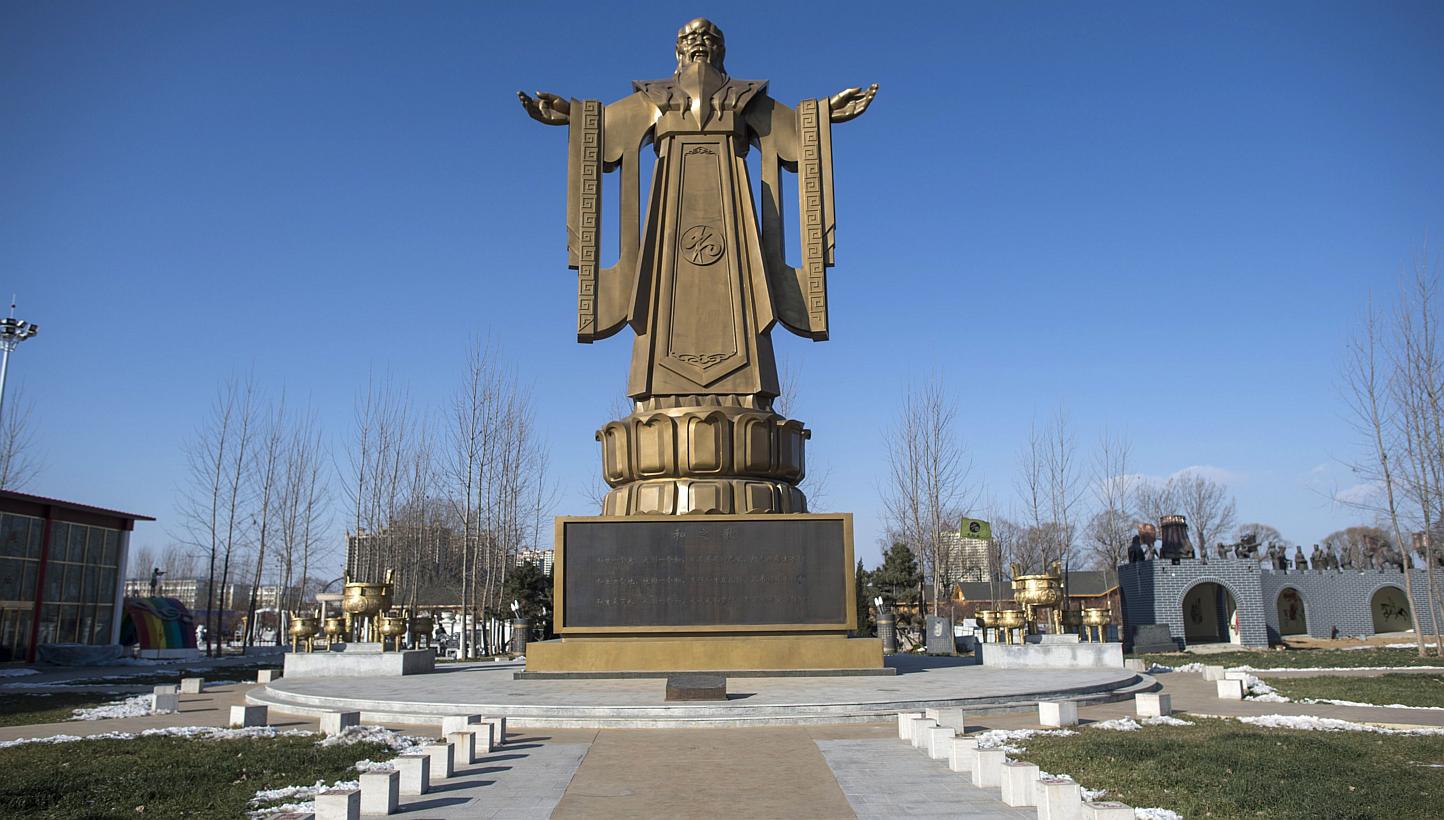Confucius the Redeemer symbol of Xi's Chinese Dream
Sign up now: Get insights on Asia's fast-moving developments

BEIDAIHE, China (AFP) - Arms outstretched like Rio de Janeiro's Christ the Redeemer, a towering Confucius statue stands in the seaside resort that hosts the Chinese Communist leadership's summer retreat, opposite a hulking monument to President Xi Jinping's dreams.
The gleaming gold-yellow sculptures are part of a 50 million yuan (S$10.6 million) complex built by Wang Dianming, a portly ex-general who says his fortune comes from a series of travel and educational companies.
A Communist Party member, Mr Wang insists the project has no official backing - but the juxtaposition is a revealing illustration of the nationalist, sometimes traditionalist tenets inherent in Mr Xi's outlook.
Confucianism, an ethical and philosophical system that stresses hierarchy and obedience, was China's official state ideology in Imperial times.
It was reviled by the Communist Party during their first decades in power, and particularly targeted during Mao Zedong's Cultural Revolution, but Mr Xi has long approvingly cited the sage.
Since taking office two years ago he has also coined the concept of the "Chinese Dream", describing it as "national rejuvenation, improvement of people's livelihoods, prosperity, construction of a better society and military strengthening".
Standing under the effigy's open palms, Mr Wang, 61, said: "The Chinese Dream draws on the nutrients from China's exceptional traditional culture and the teachings of Confucius. Using these ideas together will save mankind."
The Confucius figure is 19 metres high and gazes out at a stylised obelisk emblazoned with the characters for "Chinese Dream" on the front and "socialist core values" on the back. Its square base greets visitors with a lengthy quote from Mr Xi, while the other three sides depict soldiers, farmers and workers in a socialist realist style akin to 1950s propaganda posters.
"We want to achieve the Chinese Dream not only for the benefit of the Chinese people, but also for the benefit of all peoples," reads part of the Mr Xi statement.
In a corner of the grounds a much smaller white statue of Mao, the founder of Communist China, ensures that all ideological bases are covered.
In more recent years, Beijing has been working to counteract the increasing popularity of Western culture and religions by promoting carefully crafted interpretations of Chinese heritage.
The Confucian concepts being promoted under Mr Xi are a romanticised ideal crafted by the Communist Party and not open to discussion or further interpretations, said Jyrki Kallio, a senior research fellow at the Finnish Institute of International Affairs.
"Xi seems to believe that Confucianism is something that can bolster his own standing in China," he said.
"The Party has apparently launched a dedicated project to formulate a new set of values to guide the people, and traditional schools of thought provide a good foundation for this."

